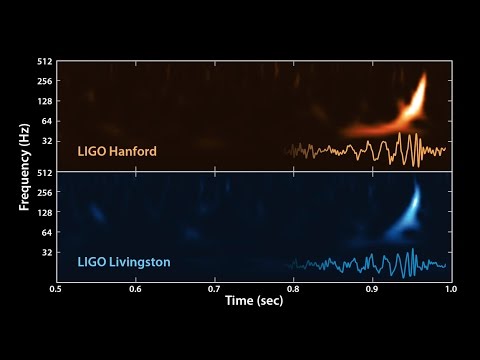The incredibly powerful event, which released 50 times more energy than all the stars in the observable universe
The scale of space is so dummy-ass to my monkey brain. It just loses all meaning and becomes Dragon Ball Z power levels when I have to imagine something larger/more powerful than our sun.
edit: Also, like the Jupiter-Levy 9 impact it's wild that we were around and technologically capable of capturing such a unique event.
Gravitational waves are extremely interesting and important for astronomy. It's crazy to consider that essentially everything we knew about space before LIGO was through just one of the fundamental forces, light/electromagnetism. The history of astronomy is the advancement of our light sensing techniques and data processing. For example, we can infer the inner structure of stars through subtle oscillations in light output caused by seismic waves like those that occur in Earth's interior. We can also infer the existence of exoplanets in a similar way, by looking for periodic dips in brightness due to planets eclipsing stars. We know the composition of stars from the spectrum of light we receive, accounting for light-scattering dust and redshift — the latter which we infer through "standard candle" distance measurements like type Ia supernovae with well-defined spectra.
So the significance of gravitational wave measurement cannot be understated for astronomy. It is the beginning of "multimessenger" astronomy, the ability to observe astronomical phenomena through a force other than electromagnetism. The conundrum of dark matter is just one example of how limited a single force can be.
On the topic of dark matter, I read that astronomers are thinking that the black holes detected by LIGO may have been primordial black holes which are a top candidate for dark matter (a type of MACHO).
I found a YouTube link in your post. Here are links to the same video on alternative frontends that protect your privacy:







